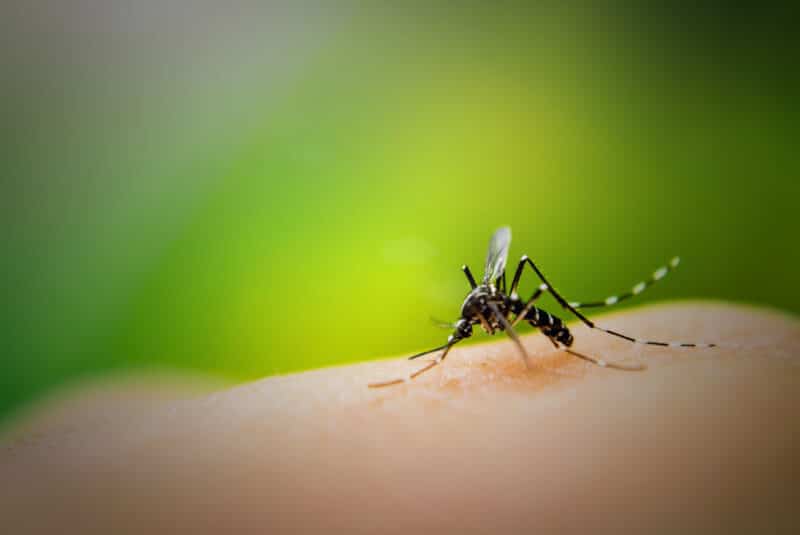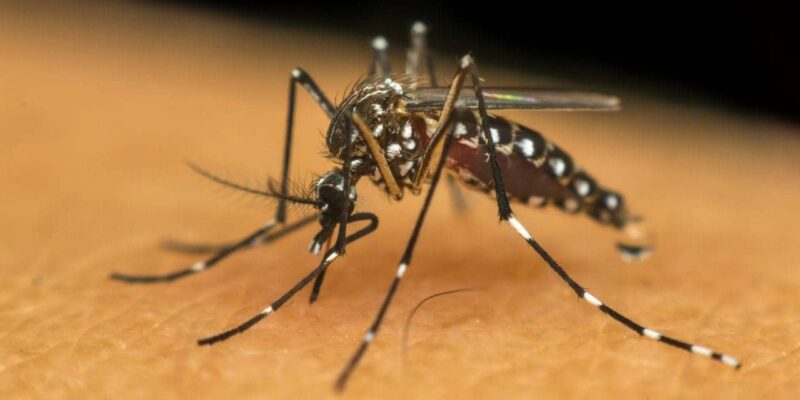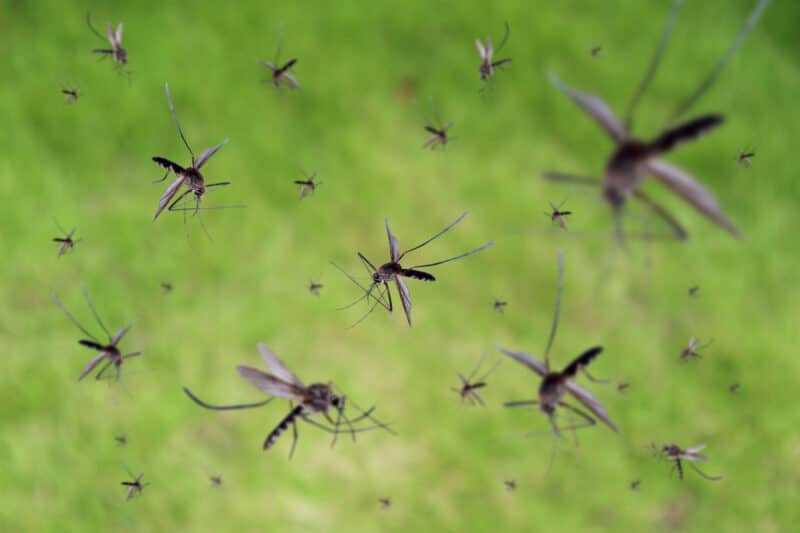Mosquito hearing is essential in mosquito reproduction. That is why scientists are now focusing on the sense of hearing when it comes to repelling mosquitoes. Their studies found that there are certain receptors in mosquito ears that help them hear. There are now new insecticides that can target these receptors.

Mosquito Hearing Relevance
Studies reveal that male mosquitoes must hear the females so that they can reproduce. They have sophisticated mosquito hearing. This is important for them to detect the flight tones of female mosquitoes during swarming.

Mosquito ears can detect particle velocity of sound-induced air particle vibrations. The light flagellum moves by means of friction with the particles of air. They vibrate when a mosquito beats its small wings. Small hairs cover the flagellum that help make mosquito hearing more sensitive. In a specific malaria mosquito, Anopheles gambiae, the male ear hairs are longer than those in females during a specific time of day. It is usually when the mosquitoes swarm.
Scientists are looking for new ways to take advantage of hearing in developing new types of insecticides. That way, they can have better control of mosquito-borne diseases.
Octopamine Molecule
Research shows that a signaling pathway in mosquito hearing has an octopamine molecule. This substance is vital for hearing as well as detecting mating partners. Octopamine receptors peak in the male mosquito hearing as mosquitoes fly in a swarming pattern. Mosquito swarms are noisy. Octopamine helps enhance mosquito hearing so it can hear females better. It modulates the stiffness and frequency tuning of the sound receiver in the male mosquito’s ear. It also controls the changes that can boost the ability to detect females at dusk.

Male mosquitoes can spot the buzz coming from female mosquitoes in large swarms at dusk. The octopaminergic system in mosquito hearing can be a target of insecticides. Mating among mosquitoes is essential for the survival of these insects. Scientists aim to keep identifying targets. These targets can disrupt the proliferation of mosquitoes as well as the transmission of deadly diseases.
What Octopamine Does
Scientists studied the gene expression in the male’s hearing and discovered that octopamine receptors tend to elevate during swarming. This receptor affects mosquito hearing on many levels. It can also control different mechanical changes to enhance female detection.
Swarms of malaria mosquitoes are short gatherings of about a thousand insects every sunset. That is why it is very challenging for males to detect females. Male mosquito hearing can help continue reproduction even in such a noisy situation. This is possible through octopamine. The noisy acoustic background allows male mosquitoes to locate their mates.

Mosquito hearing is very frequency-selective. It is sensitive. It was also supported by an intricate system of auditor efferent neurons. These neurons modulate the auditory function. Octopamine come out with GABA and serotonin. They all modulate these insects’ hearing in disease-causing mosquitoes.
Insecticides and Octopamine
Many experts believe that octopamine receptors are very suitable for the development of insecticides. They are planning to use their findings in developing new molecules. These molecules will then help develop disruptors in mosquito mating, especially among malaria mosquitoes.

Scientists work with mosquito repellent companies to find out how to repel mosquitoes by altering their hearing. By doing so, males will not be able to find females and reproduce. This would prevent them from spreading mosquito-borne diseases.